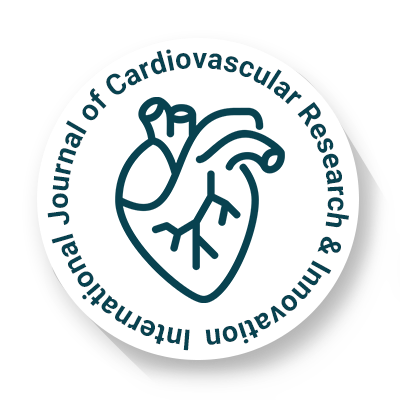
International Journal of Cardiovascular Research & Innovation
OPEN ACCESS

OPEN ACCESS

Institute for Translational Medicine and Therapeutics, Department of Systems Pharmacology and Translational Therapeutics, Perelman School of Medicine, University of Pennsylvania, Philadelphia, United States
Heart failure (HF) poses a signicant burden on healthcare systems due to its cost of treatment, morbidity, and mortality. HF can arise from various cardiac dysfunctions or comorbidities such as hypertension, obesity, diabetes, kidney disease, and dyslipidemia. Biomarkers, especially natriuretic peptides (NP), play a crucial role in HF diagnosis and prognosis. Emerging biomarkers like galectin-3 and sST2 show promise, particularly for HFpEF and HFmrEF. Investigating cellular signatures at the single-cell level and somatic mutations in hematopoietic cells has revealed their links to HF progression and outcomes. Metabolomics proling distinguishes between HFpEF and HFrEF, with distinct metabolite proles indicating variations in pathophysiological mechanisms. This review article provides a concise overview of emerging biomarkers for diagnosis and prognosis of HF. It is apparent that the future of HF diagnosis and treatment should focus on comprehensive single-cell multi-omics panels, combining transcriptomics, metabolomics, and proteomics. This approach will aid in identifying more precise biomarkers and risk factors related to the HF phenotype, allowing for improved diagnostics and targeted therapies.
Received 20 July 2023; Revised 26 August 2023; Accepted 4 September 2023
Institute for Translational Medicine and Therapeutics, Department of Systems Pharmacology and Translational Therapeutics, Perelman School of Medicine, University of Pennsylvania, Philadelphia, United States